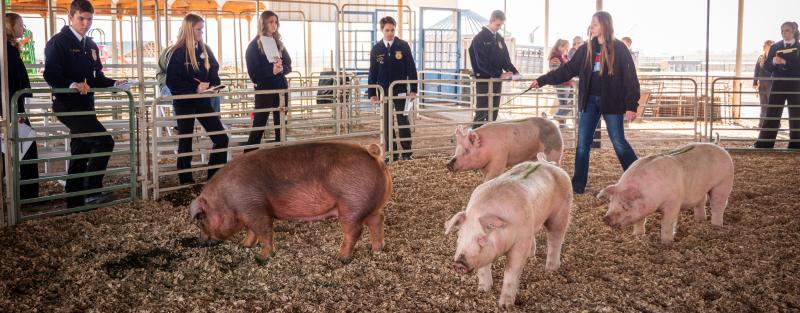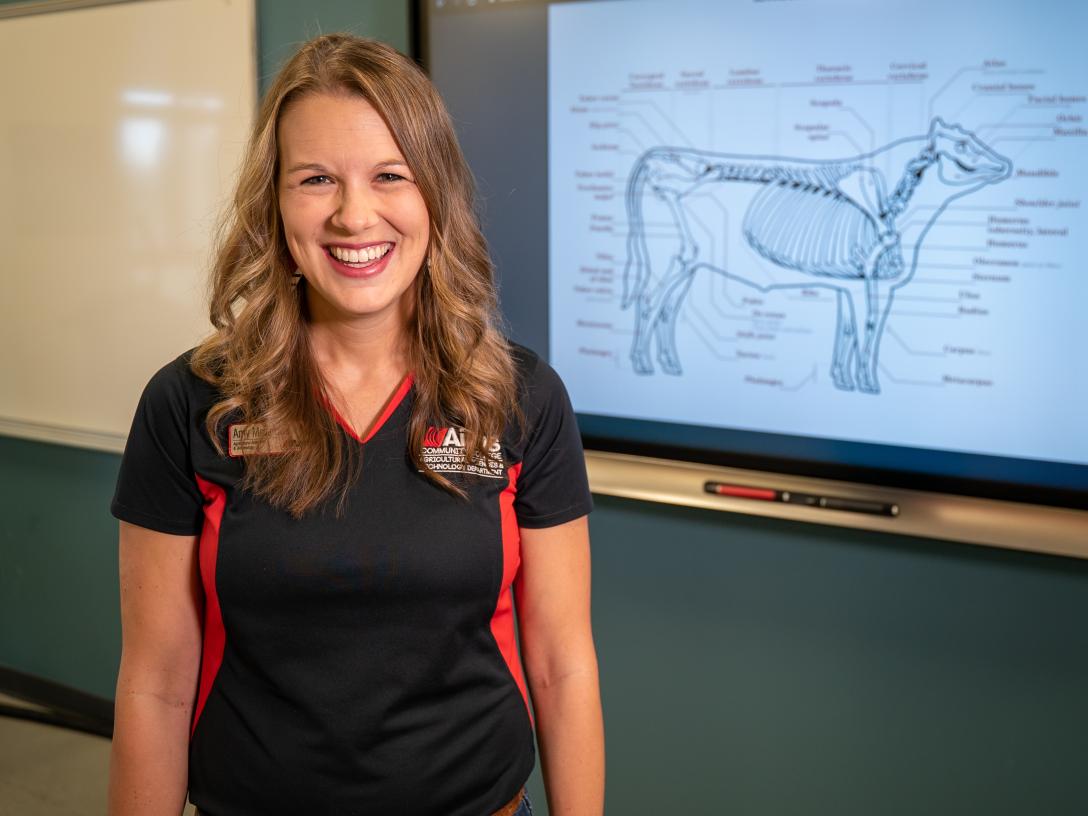Become a crucial part of America’s agriculture system by helping fill the current demand for agriculture educators. Combine your passions for teaching and agriculture by pursuing an ag education degree at Aims. An agricultural education associate degree prepares you for a career as a classroom teacher, extension educator or agribusiness trainer.
This liberal arts degree with designation program is designed for students who want to transfer to a participating public Colorado four-year school to pursue a bachelor’s degree. Earn the first two years of credit toward your four-year degree at Aims at a fraction of the cost. You can also graduate with this degree from Aims and choose to immediately enter the workforce.
Explore your interest in livestock, soil and crop science, machining and welding, human nutrition or all of the above. Gain hands-on experience in both agriculture and education from a top Colorado agricultural school that won the award for Outstanding Postsecondary Agriculture Program from the National Association of Agricultural Educators. Aims Community College was chosen for this award over other schools in Colorado, Arkansas, Kansas, Louisiana, New Mexico, Oklahoma and Texas, including the top four-year universities in those states.







